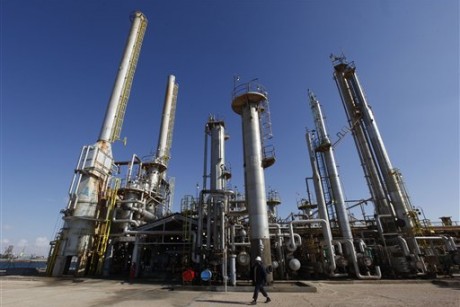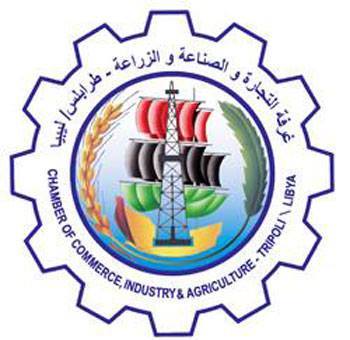
Day one of the Libya Summit, one of the largest business events in Libya so far, has got off to a flying start with speeches from the president of the American Chamber of Commerce in Libya and the editor of the Libya Herald.
Richard H. Griffiths, the President of the American Chamber of Commerce in Libya who is chairing the summit, gave the welcome address. He paid tribute to all the Libyans who had died as martyrs during the fight for freedom. He also paid tribute to the late US Ambassador Chris Stevens, pointing out that he was passionate about Libya and Libyan freedom. While emphasising the role of the American Chamber of Commerce in Libya, he also spoke about wider trade relations between the two countries.
Griffiths then introduced the morning’s keynote speaker, Michel Cousins, Editor-in-Chief of the Libya Herald. Cousins set out the challenges facing Libya on its journey to become a prosperous economy. He stressed, in particular, that foreign businesses wishing to invest successfully in Libya must either visit Libya regularly or have somebody in the country on a full-time basis.
Cousins also called for visa relaxation for countries wishing to do business with Libya, mentioning France, the UK, the US and Canada. He pointed out that the reason why Turkish businessmen are doing very well in Libya at the moment is because there are no visa requirements between the two countries.
The morning sessions also saw Ahmed Shebani, Founder of the Democratic Party of Libya, share his thoughts on building democracy in Libya. Sami Zaptia, Managing Editor of the Libya Herald, gave a speech about the opportunities and challenges for business in Libya. He emphasised the country’s strengths, including its young population, its oil production, now back to pre-revolution level, and its strong financial surpluses.
Zaptia highlighted the need for education and retraining, and for a change in mindset in the country, touching on the contribution that members of the diaspora returning to Libya can make. He discussed how, for the new government, long-term planning and looking at diversification and renewable energies were priorities, balanced by the need to deliver tangible examples of success in the short-term, such as fewer power cuts and faster internet connections.
It is the first time that these topics have been addressed so broadly, and they garnered an enthusiastic response from the audience. The hundreds of delegates attending the Summit included ambassadors, government officials and leading businessmen.
Yesterday, in a special pre-conference session, Matthew VanDyke shared his extraordinary experiences as a freedom fighter and prisoner during the Libyan revolution. He is believed to have been the only non-Libyan American to fight alongside rebels as an official member of the National Liberation Army of Libya during the Libyan Civil War. VanDyke is now working on a documentary about the Syrian revolution.
Speakers over the next few days include Hatem H. Benfayed, the CEO of the Libya Housing Authority, Dr Kevin Dunseath, director of global education for Cisco, Dr. Saif AlJaibeji from the Institute of Healthcare Research and Dr. Ahmed M. Shembesh, founder of the Libya Foundation for Rehabilitation. Princess Alia Al-Senussi, patron of the Libyan Heritage Trust, will throw light on how Libya’s rich culture and heritage can be capitalised on for the progression of the economy.
These are just a few of the eminent speakers and panelists who will be putting forward their views and experiences during the next two days of the Libya Summit. The presentations, knowledge-sharing sessions, opportunities for questions and more than ten hours of networking sessions contribute to making this unique event Libya’s most important summit this year.
Organised by Fleming Gulf Conferences, the stated objective of the Libya Summit is to discuss the transformation of Libya as a model of stability and economic excellence. [/restrict]







